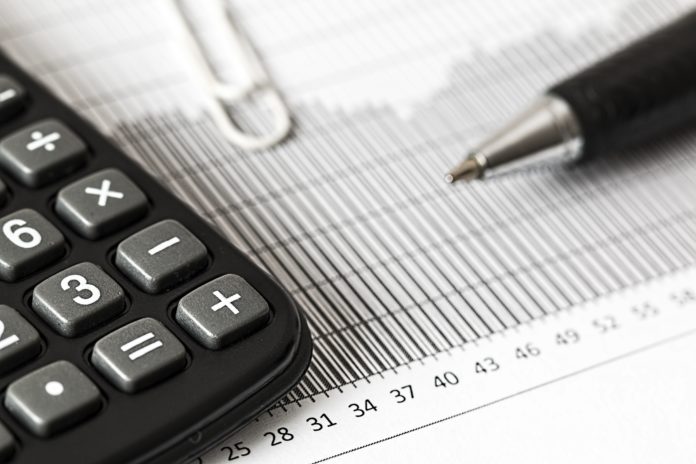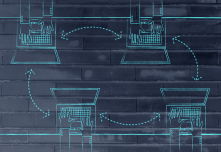
By Ryan J. McDonell, Tax Supervisor, O’Connor & Drew, PC
Do you understand the implications of recent tax reforms on your dealership? Few companies do, as it’s a complicated issue. Although Congress and the President have stated that the tax reform changes would simplify the tax code, businesses are quickly discovering that the changes are anything but simple. Dealerships are going to need to determine – and quickly — which changes will most affect their tax bills beginning in 2018.
Below is a high-level look at some of the key areas of interest in H.R. 1, the Tax Cuts and Jobs Act of 2017 for auto dealers.
Depreciation Changes
Section 179
Section 179 of H.R. 1 allows businesses to fully expense the cost of qualifying property instead of depreciating it over several years. The deduction decreases taxable income and defers tax liability by expensing capital assets.
The tax reform legislation nearly doubles the expense limitation to $1,000,000 while increasing the phase-out threshold to $2,500,000. Businesses may immediately expense up to $1 million of qualifying purchases, if purchases do not exceed $2.5 million. The legislation now includes as qualifying property roofs, HVAC systems, fire protection and alarm systems. Section 179 remains available for auto dealers.
Bonus Depreciation and Floor Plan Indebtedness
Bonus depreciation allows accelerated depreciation equal to 50 percent of the cost of capitalized assets plus regular depreciation. Tax reform increases bonus depreciation to 100 percent for assets placed in service after September 27, 2017. One hundred percent bonus is available until 2023, at which point, the percentage decreases annually until reaching zero in 2027.
Under the new legislation, businesses with floor plan financing indebtedness, like many auto dealerships, may not use bonus depreciation. However, while interest expenses for most businesses cannot exceed 30 percent of the business’ adjusted taxable income, interest expenses related to floor plan financing remains fully deductible.
Luxury Auto Limits
Luxury automobile depreciation limits apply to vehicles used in a trade or business, not exceeding 6,000 pounds gross vehicle weight rating (GVWR). These vehicles are subject to annual depreciation limits regardless of the vehicle cost.
The new tax bill increases the depreciation limit for passenger vehicles in the first three years to $10,000, $16,000 and $9,600, and to $5,760 for each subsequent year. Eight thousand dollars of first-year bonus depreciation is still available, so a luxury auto may take up to $18,000 of depreciation in year one. The $25,000 Section 179 limitation for vehicles exceeding 6,000 pounds GVWR remains unchanged.
C Corporation Tax Rate and 20 Percent Deduction for Passthrough Entities
In response to the C corporation tax rate being slashed from 35 percent down to 21 percent, Congress created a new 20 percent deduction on qualified business income (QBI) from passthrough entities and sole proprietorships. This essentially levels the playing field between C corporations and passthrough entities. However, the deduction has complexities, and professionals are still waiting on guidance from the IRS on specific treatment of items.
Taxpayers with taxable income of less than $315,000 married filing jointly, or $157,500 for other filers, may deduct 20 percent of the income from passthroughs against overall taxable income. The deduction is calculated on an entity-by-entity basis and will be reported on an individual’s income tax return after adjusted gross income (AGI), as a “below the line” deduction. Paired with the newly-reduced individual tax rates, the tax rate on passthrough income may be as low as 29.6 percent. Taxpayers with taxable income above these amounts are subject to limitations based on the business’ wages expense and the unadjusted basis of the business’ depreciable assets.
Passthrough Business Losses
Cumulative business losses totaling more than business income plus $500,000 (married filing jointly) will not be deductible in the year of loss but will be carried forward to offset future passthrough income.
For example, if passthrough A has taxable income of $500,000, and passthrough B has a taxable loss of $2,000,000, resulting in a net loss of $1,500,000, the taxpayer will be allowed to deduct a loss of $500,000 to offset other income (wages, interest, dividends, etc.) only. The remaining $1,000,000 loss will be carried forward indefinitely to offset future income.
Other Notable Changes (2018)
- Entertainment expenses, except employee holiday parties, are no longer deductible.
- Under Section 179’s “Qualified Improvement Property,” leasehold improvements that fall under the definition of restaurant and retail property are now combined into a new 15-year class, shortening their depreciation significantly from previous 39-year depreciation timetables.
- UNICAP (uniform capitalization) is not required for entities meeting the small business gross receipt test of average annual gross receipts below $25 million for the three previous years. (In addition, auto dealers meeting this test may also take the bonus, regardless of floor plan financing.)
- F&I captive insurance companies benefit from the reduced 21 percent corporate rate, including 831(b) investment income and controlled foreign corporations (CFC) with domestic election.
- Corporate net operating losses generated in 2018 or later are limited to 80 percent of taxable income, may be carried forward indefinitely, and the carryback option is repealed.
In summary, there are numerous ways the new tax reform bill could affect your auto dealership, and you may not be aware of many of them. To ensure that your dealership is ready this time next year, it’s imperative to act now. Discuss these changes with your CPA firm at length and have them perform a detailed analysis of your dealership to maximize your bottom line potential.
 Ryan J. McDonell joined O’Connor & Drew in 2014 and became a tax supervisor in 2017. Ryan provides tax and accounting services for a variety of clients, focusing on individual and corporate taxation.
Ryan J. McDonell joined O’Connor & Drew in 2014 and became a tax supervisor in 2017. Ryan provides tax and accounting services for a variety of clients, focusing on individual and corporate taxation.












